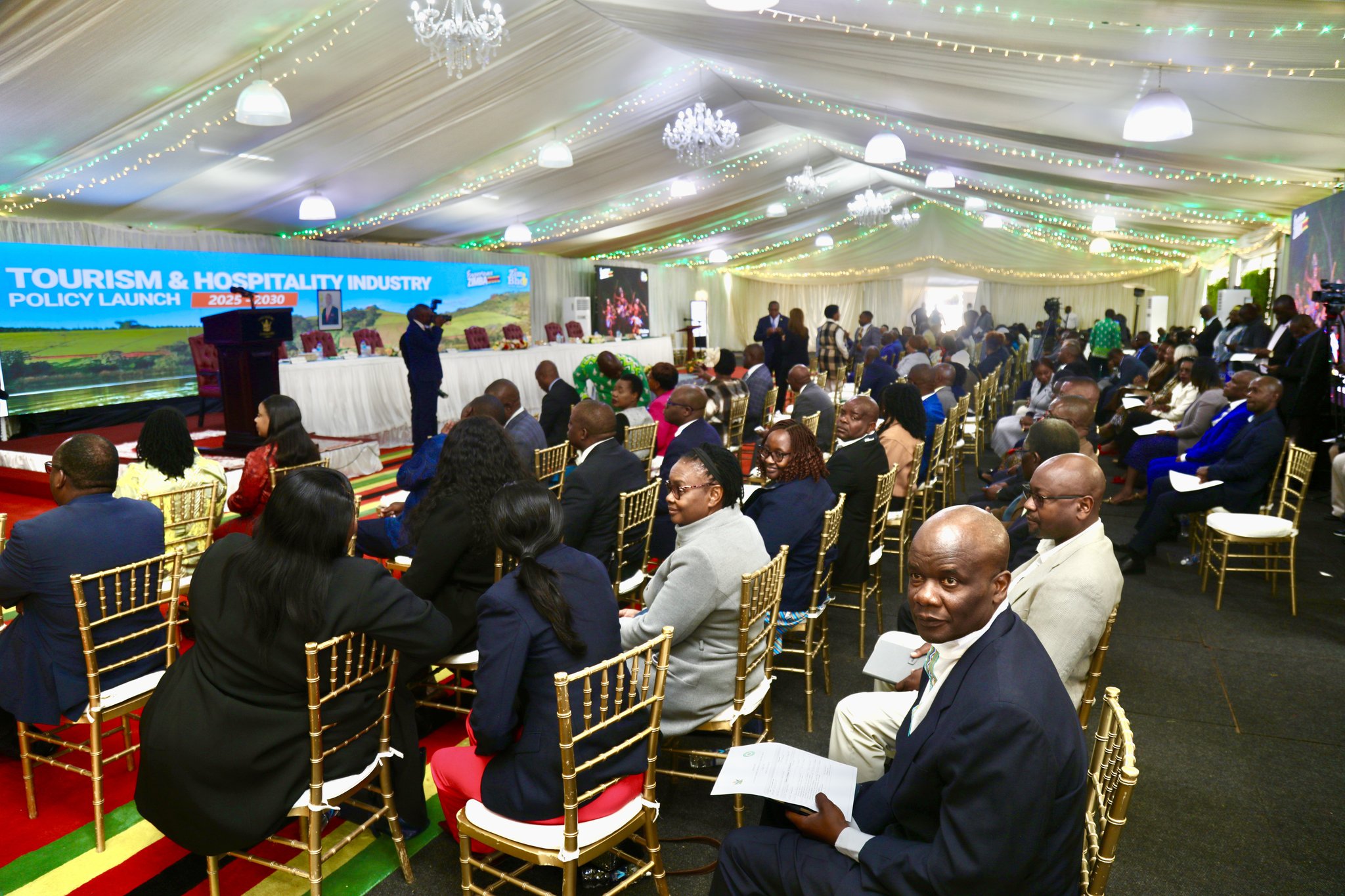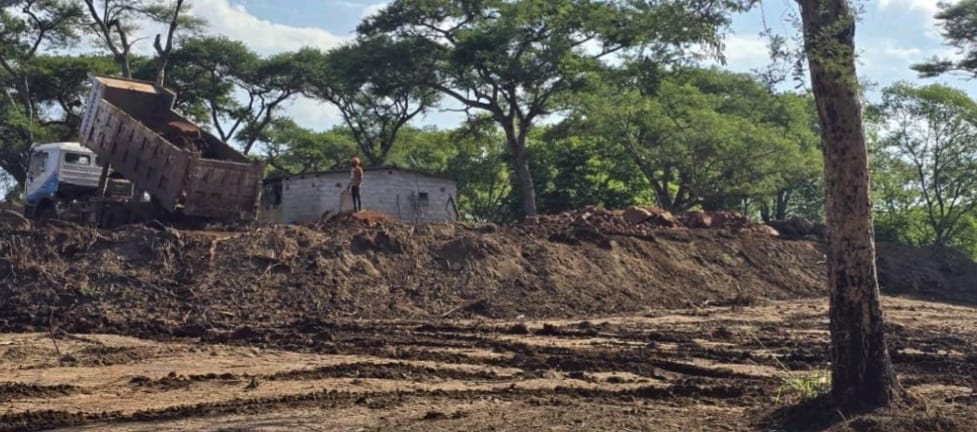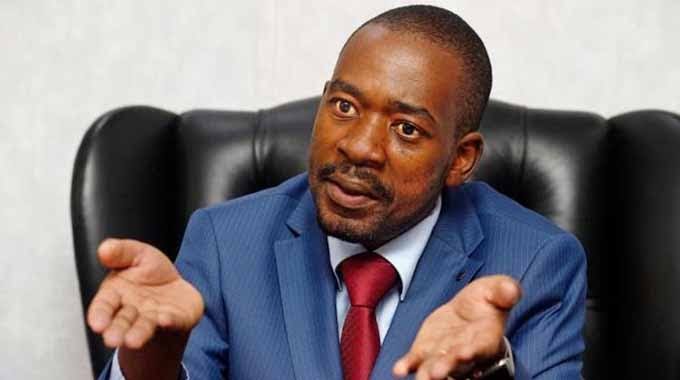Current Affairs
Zimbabwe’s Tourism Policy- a critical analysis

By Mlondolozi Ndlovu
Zimbabwe this week launched the 2025-2030 Tourism and Hospitality Industry policy which marks a renewed strategic attempt by the government of Zimbabwe to reposition tourism as a transformative pillar of national development.
This policy, launched within the framework of the country’s Vision 2030 and the National Development Strategy 1 (NSD1), has profound implications for tourism law, both in its current state and in the reforms it is likely to provoke.
While it is primarily a policy document, its provisions and guiding principles interact closely with the government that governs tourism in Zimbabwe, most notably the Tourism Act (Chapter 14:20), the Constitution and associated regulatory statutes.
From the outset, the policy is grounded in legal legitimacy. The foreword explicitly references Section 13 of the Constitution of Zimbabwe, which enshrines the principle of equitable development and mandates the state to promote sustainable and inclusive growth.
This constitutional grounding signals that the policy is not merely aspirational but also intended to inform statutory interpretation and future legal reform.
Importantly, the policy does not operate in isolation but positions itself as part of an integrated development framework that includes international instruments such as the African Union Agenda 2063 and the United Nations Sustainable Development Goals /9SDGs).
These references strengthen the normative authority of the policy and imply a need for harmonization between domestic tourism law and international standards, particularly those relating to sustainable development, heritage protection, and regional cooperation.
One of the significant aspects of the policy lies in its call for the strengthening of the tourism sector’s regulatory and institutional frameworks. The document identifies legal and regulatory as a priority.
It recognizes that the existing legal infrastructure is outdated, fragmented, and not responsive enough to the evolving needs of the tourism industry, especially in a digital world. This acknowledgment has direct implications for the Tourism Act (Chapter 14:20), which governs the licensing, promotion, and regulation of tourism services in Zimbabwe.
The policy indicates that there is a pressing need to update this legislation to address emerging sectors such as digital tourism platforms, online travel agencies, and community-based tourism enterprises.
It also suggests the introduction of new statutory instruments to strengthen compliance with quality standards, safety protocols, and consumer protection norms.
Furthermore, the policy articulates a clear agenda to decentralize tourism governance, encouraging local authorities to play a more active role in planning, infrastructure development and regulation. This has notable implications for Zimbabwe’s legal regime under the Urban Councils Act and the Rural District Councils Act, which may require amendments or new by-laws to align with the policy’s thrust towards devolved and locally driven tourism development. In this context, the policy underscores the necessity of inter-agency collaboration between Zimbabwe’s Tourism Authority, local authorities, and line ministries.
However, without a binding legal framework to facilitate and regulate such collaboration, there is a risk of institutional and legal uncertainty. Therefore, the policy implicitly calls for the enactment of legislation or statutory instruments that clearly define institutional roles, dispute resolution mechanisms, and compliance obligations across multi-stakeholder tourism governance landscape.
The policy also proposes the restructuring of the Zimbabwe Tourism Fund (ZTF) to make it more efficient, transparent, and better aligned with the objectives of domestic resource mobilization.
This proposal, while administrative in nature, cannot be realised without legislative backing. The current legal framework must be amended to reconstitute the ZTF, stipulate its funding sources, clarify its expenditure mandates, and establish mechanisms for accountability.
Similarly, the policy identifies the regulation of digital platforms and online tourism enterprises as a new frontier requiring attention. This raises important questions about how tourism law will intersect with ICT legislation, data protection regulation, and e-commerce laws. Legislative efforts will be required to bring these dimensions into a coherent legal framework that enables innovation while safeguarding national revenue, consumer rights and local operators.
Crucially, the policy reflects a strong commitment to inclusivity, gender mainstreaming, and the empowerment of youth and persons with disabilities. It mandates the state and private sector actors to promote equitable access to tourism opportunities and services. These provisions are not merely programmatic, they are in line with constitutional values and the national gender policy. However for these principles to be enforceable, they must be embedded in binding legislation. For instance, tourism laws must incorporate anti-discrimination provisions, accessibility standards for tourism infrastructure, and preferential support mechanisms for women and youth led tourism enterprises. Without such legal codification, the policy risks remaining a well-articulated but legally inert vision.
The policy also acknowledges the need to streamline licensing and registration processes, strengthening grading and inspection systems and promote good corporate governance within tourism businesses. These steps require a revision of statutory instruments, greater institutional independence for bodies such as ZTA and clearer delineation of roles between national and local authorities.
The policy’s call for compliance with tax laws is equally significant. There is an expressed desire to strengthen operational regulations and enhance tax enforcement without discouraging business growth. This implies a need for simplified tax codes, tourism specific tax incentives e.g. for eco-lodges or digital startups and greater clarity on informal sector contributions, issues that will directly inform Zimbabwe’s fiscal and legal frameworks for tourism.
A standout feature of the policy is its strong emphasis on human capital, a foundational driver of sectoral transformation. It acknowledges that tourism can only thrive where there is a skilled, ethical, and service oriented workforce.
Accordingly, it calls for training programs, university partnerships, technical and vocational education, and industry-led certification systems. However, a challenge exists in aligning curricula with real industry needs.
Tourism education must integrate customer service training, digital marketing, foreign languages, and hospitality law and safety protocols.
This human capital agenda will interact with labour laws, particularly around internships, minimum wages in hospitality, and workplace protections. Strengthening labour rights while maintaining employer flexibility will be essential.
The policy’s human development intentions also create opportunities for constitutional alignment with rights to education, equal opportunity, and access to economic resources.
Another key goal is the expansion of regional and international cooperation. The policy advocates for active participation in global tourism platforms, the hosting of expos, and engagement with foreign markets.
This diplomatic strategy intersects with international law, particularly trade and tourism agreements under the African Continental Free Trade Area, SADC protocols, and bilateral MOUs.
Cooperation also extends to cross-border tourism packages, wildlife conservation efforts, and joint heritage branding.
These require not only political will but also regulatory harmonization, visa facilitation agreements, and security coordination. The policy thus acts as a springboard for enhancing Zimbabwe’s soft power and regional integration.
Finally, the policy’s success will depend on monitoring and evaluation. Good policies often fail due to weak implementation.
Legal instruments may need to mandate periodic reporting, independent audits of the ZTF, and performance based reviews of public institutions in the sector.
Moreover, building public trust and policy legitimacy will require transparency, community participation, and clear communication. Legal frameworks must thus incorporate accountability mechanisms to ensure that this policy becomes more than just a document.
Mlondolozi Ndlovu is a legal researcher, lecturer and media practitioner. He writes in his own capacity and can be contacted on mlondo717@gmail.com or +263778351296
Current Affairs
Government Hails Muroodzi River Rehabilitation Pilot

By Itai Mazire
A high-level government delegation, led by Deputy Chief Secretary in the Office of the President and Cabinet, Engineer Amos Marawa, has praised the progress made on the pilot project of the Presidential River Rehabilitation Program at Muroodzi River in Mazowe.
The delegation, which included secretaries from various government departments, expressed satisfaction with the ongoing de-siltation and restoration efforts being carried out by Prevail Group of Companies, owned by Special Advisor to the President, Dr. Paul Tungwarara.
Engineer Marawa said the initiative is set to be rolled out nationwide.
“All provinces are working to identify degraded river sites so we can quantify the amount of rehabilitation work required,” he said.
“To kick-start this process, the government approved a pilot project, which was implemented at Muroodzi River in Mazowe.”
The project, which began last year, initially focused on a five-kilometre stretch of the river.

“We developed a rehabilitation plan in consultation with Prevail International, the company appointed for the work,” Eng. Marawa explained.
“They have already restored about three kilometres, starting with the most degraded section of the five-kilometre stretch. We are here to assess the quality of their work, and we are pleased with the progress in de-siltation and river restoration.”
Prevail International Project Manager, Simbarashe Makonese, outlined the challenges and solutions implemented.
“This site was heavily mined, with excessive silt in the river, unstable banks, and eroded riverside slopes. Our work has involved removing silt, stabilising degraded slopes, installing soil erosion control sheets, and rehabilitating the riverbanks,” he said.
Mrs. Tendai Sithole, Chief Executive Officer of Prevail International, highlighted the project’s achievements.
“We intentionally started with a five-kilometre stretch of Muroodzi River, and to date, three kilometres have been restored. Our work has restored irrigation, agricultural activities, and access to clean and safe water for communities along the river,” she said.
The Presidential River Rehabilitation Program is a key government initiative aimed at reversing extensive environmental damage caused by years of illegal and uncontrolled riverbed mining.
Such activities led to severe siltation, disrupted water flow, and negatively affected irrigation, agricultural productivity, and access to clean water for communities.
The government has banned riverbed mining through Cabinet resolutions, reinforced by Statutory Instrument 88 of 2024.
The Muroodzi River project serves as a prototype, demonstrating practical and sustainable methods for restoring degraded rivers and improving water flow. Once the model proves successful, plans are in place for a national rollout across all provinces.
Current Affairs
Chamisa Under Fire as High Court Is Asked to Probe CCC Finances

A Harare resident has petitioned the High Court, calling for former Citizens Coalition for Change (CCC) leader Nelson Chamisa to account for the party’s finances before establishing or registering any new political formation.
The applicant, Mr Talent Rusere, filed the application on Thursday, arguing that Mr Chamisa should not be permitted to launch another political entity without first ensuring a transparent handover of CCC affairs and a full audit of the party’s financial records.
In his court papers, Mr Rusere is requesting a comprehensive review of CCC assets and expenditures, including an armoured vehicle allegedly acquired for Mr Chamisa in 2021, as well as the management of both public and donor-funded resources.
He further argues that the audit should be conducted independently, certified by the Auditor-General, and formally acknowledged by the party’s current leadership.
The application also seeks an order compelling Mr Chamisa to submit a sworn financial statement within 21 days, outlining how party funds were handled during his time at the helm.
The matter is now awaiting consideration by the High Court.
Current Affairs
Minister Chadzamira Hands Over Starlink Kits to Junior Parliamentarians

Itai Mazire
In a pivotal move set to revolutionise education in Masvingo Province, the Minister of State for Provincial Affairs and Devolution, Hon. Ezra Chadzamira, handed over 35 Starlink kits to 35 Junior Parliamentarians at Victoria High School.
The initiative marks a significant step in the Government’s unwavering commitment to bridging the digital divide and nurturing a technologically advanced generation in line with Vision 2030.
The event showcased the national drive to integrate technology into the learning environment, ensuring that Zimbabwean students are equipped to meet the demands of the 21st century. This vision has been consistently championed by the Minister of Primary and Secondary Education, Professor Torerayi Moyo.
“Connectivity is no longer a luxury; it is a necessity for learning in the 21st century,” said Professor Moyo.
“We are building an education system that is inclusive, modern and future-ready. By investing in connectivity, we are investing in the dreams of our children, the strength of our communities, and the prosperity of our nation,” he added.
Minister Chadzamira echoed these sentiments, highlighting the transformative potential of the Starlink kits.
“This gesture is more than just the distribution of equipment; it is a powerful symbol of our commitment to bridging the digital divide and empowering the next generation of leaders,” he said.
He also outlined ambitious plans for the province.
“My office intends to roll out this initiative across the entire province to create a technologically savvy generation in line with Vision 2030,” said Hon. Chadzamira.
The Junior Parliamentarians, now equipped with high-speed internet access, are expected to use the technology to enhance their learning and to serve as digital ambassadors within their respective schools and communities.
This strategic distribution forms part of a broader Government programme to connect schools nationwide, ensuring that every learner, regardless of geographical location, has access to global knowledge and resources.
The Government’s proactive approach underscores its commitment to building a future-ready education system and advancing Zimbabwe’s national development goals.
-

 Current Affairs3 months ago
Current Affairs3 months agoOperation restore order
-

 Crime and Courts4 months ago
Crime and Courts4 months agoMasasi High School Abuse Scandal Sparks Public Outcry
-

 Crime and Courts5 months ago
Crime and Courts5 months agoKuwadzana Man Jailed for Reckless Driving and Driving Without a Licence
-

 Current Affairs6 months ago
Current Affairs6 months agoBreaking: ZIMSEC June 2025 Exam Results Now Available Online
-

 Current Affairs5 months ago
Current Affairs5 months agoMunhumutapa Day: Zimbabwe’s Newest Public Holiday Set for Annual Observance
-

 Current Affairs4 months ago
Current Affairs4 months agoBREAKING NEWS: ZANU PF Director General Ezekiel Zabanyana Fired
-

 Current Affairs6 months ago
Current Affairs6 months agoNo Racism in Our Cricket: Government
-

 Current Affairs5 months ago
Current Affairs5 months agoGovernment Bans Tinted Car Windows in Nationwide Crime Crackdown







